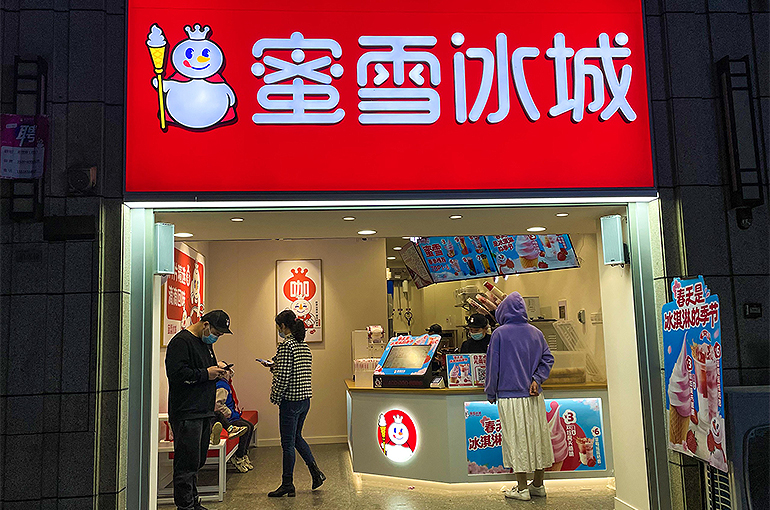 Chinese Ice Cream, Tea Chain Giant Mixue to List in Hong Kong
Chinese Ice Cream, Tea Chain Giant Mixue to List in Hong Kong(Yicai) Jan. 3 -- Mixue Bingcheng has filed to go public in Hong Kong, less than four months after the leading Chinese ice cream and tea chain filed for an initial public offering on the main board of the Shenzhen Stock Exchange.
Mixue’s IPO prospectus did not disclose how much the Zhengzhou-based firm aims to raise, but said the proceeds would go to increase capacity, improve logistics, expand overseas business, enhance digital and intelligent capabilities, and for marketing and other general purposes.
The listing’s sponsors are BofA Securities, Goldman Sachs, and UBS Group, the Hong Kong Stock Exchange announced yesterday.
Established in 1997, Mixue specializes in freshly made low-priced tea drinks. It owned over 36,000 stores as of last September, with about 4,000 located in 11 foreign countries and regions, including Singapore and Japan. It sold 5.8 billion cups of freshly brewed tea in the first nine months of last year, ranking top in China and second globally.
Mixue’s net profit soared 51 percent to CNY2.5 billion (USD352.2 million) in the nine months ended Sept. 30 from a year earlier, revenue surged 46 percent to CNY15.4 billion (USD2.2 billion), while its gross profit margin was 30 percent. In 2022, profit rose 5.3 percent to CNY2 billion, while revenue jumped 31 percent to CNY13.6 billion and GPM was 28 percent.
Mixue’s advantage is its supply chain system, according to its prospectus. It makes around 60 percent of its food components and owns five plants with an annual capacity of 1.43 million tons of ingredients, including sugar, milk, tea, coffee, and fruits, helping it to be highly cost-effective.
Emerging markets such as China and Southeast Asia are growing rapidly, with the annual consumption of freshly made drinks per person in the two regions set to surge nearly three times to 52 cups and 36 cups by 2028 from 2022, Mixue said. The combined share of China and SE Asia in the global market will rise to 20.2 percent from 10.9 percent.
Mixue's founder Zhang Hongchao and his brother Zhang Hongfu own nearly 43 percent of the company.
Editor: Martin Kadiev